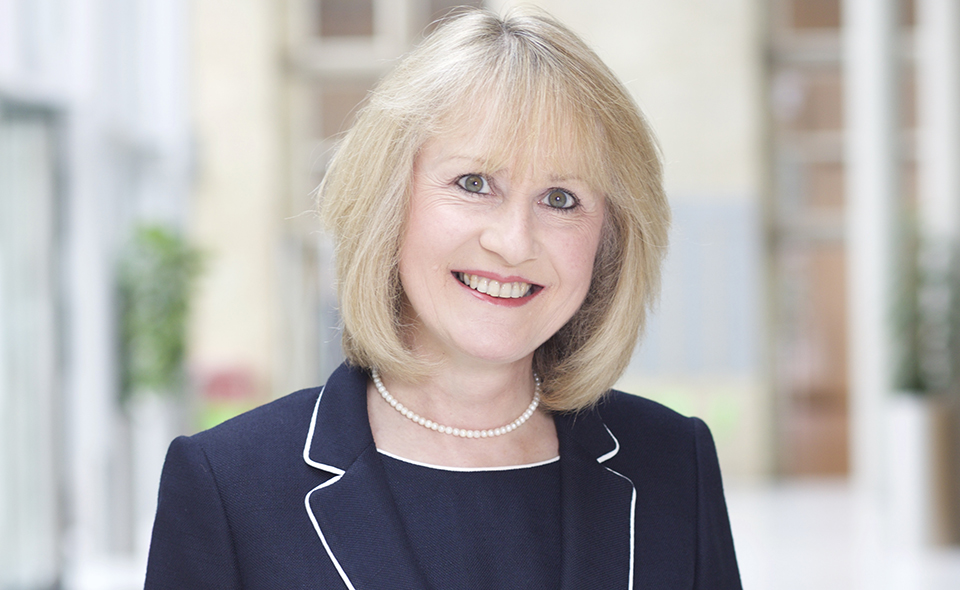I am Principal Lecturer for the Practitioner Portfolio at Nottingham Law School. In this role, I develop tailored continuing professional development courses for law firms and individual practitioners and oversee a team of NLS tutors and practitioner consultants who regularly teach on the courses. I joined the Law School in 2002. Before that, for many years as a qualified solicitor, I practised commercial litigation with a national law firm.
My role at NLS ranges from leadership of strategy for the Practitioner Portfolio to line management of colleagues and external faculty, coaching students for negotiation and mediation competitions and designing and delivering practical courses for practitioners which emphasise the skills required in the practice of law and how delegates may develop their skills after the course. I coach colleagues in leadership and management, sit on course design committees in the University and am a member of the School Academic Standards and Quality Committee.
One of the most common complaints about formal legal education and training is that, whilst the experience may be interesting and even enjoyable, nothing happens afterwards as a result. There is no ‘bottom line’ benefit. Whilst we cannot control what delegates do or do not do differently once they leave the course, we can offer some guidance on how to maximise the chances of delegates translating their learning into relevant action for their practice.
The practitioner courses at NLS are all based on an approach to learning called reflective practice. The approach encapsulates much of the classic theory about how adults learn.
‘Continuing’ is the focus of our courses which require delegates to reflect on what they have experienced in their practice, on the course and following the course. Our aim is to introduce tools for the development of these skills, provide a framework for practising those suggested methods and encouraging, by application of reflective practitioner principles, to adapt their learning to other contexts. The pedagogy is transformative and produces graduates with the ability to grow their mindset and achieve excellence in their endeavours.
[ymal]
‘Learning by doing’ or experiential learning at first instance might imply the requirement for physical engagement and until 23 March 2020, this was our preferred means of delivery. Interaction and engagement are key to the successful achievement of the learning outcomes and metacognitive enrichment in the delegates. Providing delegates with a ‘safe environment’ to practice skills underpins the successful delivery of experiential learning. Movement around NLS’s small group classrooms to complete tasks is traditionally central to the effectiveness of delivery of ‘learning by doing’ pedagogy.
However, the pandemic lockdown on 23 March 2020 forced us to question this belief. Could we deliver our constructively aligned experiential learning courses online? Could we replicate the physical movement between groups and outputs from group discussions? Would the tutor be able to ‘sit’ among the delegates to give feedback and facilitate guidance on the tasks? Could we ensure delegates’ access to and engagement with the course and mental health?
With these questions in mind, we turned to Microsoft Teams and created a ‘virtual NLS’. Delegates raced around the virtual group rooms created within the Team, documents were created on communal Word documents, and tutors ‘sat’ in their dedicated group’s channel – which frequently split into subgroups, causing tutors to ‘jump’ between the calls in their subgroups. Tutors moved around the group rooms to ‘judge’ advocacy hearings and delivered short plenary sessions in a dedicated plenary channel. Timing was crucial, so tutors liaised in a locked Tutor channel to co-ordinate timing and preparation.
We adapted our sessions and pushed Teams to the hilt to replicate our teaching ethos. It worked. What did we find?
Delegates would visit the Team at the end of the days’ sessions (which would finish earlier than the physical course to limit time on screen), and work offline with other team members to discuss or prepare a task for the next day’s session. They worked simultaneously on a Word document to which their dedicated tutor also had access to give feedback. This was effective for giving feedback on cross-examination questions. Delegates also found they could ‘call’ or message their tutor through Teams. It was a pleasure to witness the delegates’ engagement and enthusiasm given this new regime and the anxiety of the pandemic.
Providing delegates with a ‘safe environment’ to practice skills underpins the successful delivery of experiential learning.
Now we are back in person, have we changed our approach in any way? Yes, we have. The underpinning pedagogy of our courses remains but our approach to physical delivery has changed. MS Teams is a permanent feature of our delivery in conjunction with face-to-face sessions. Using the communal Word document to provide immediate and recorded feedback in a session in addition to being able to walk the room to facilitate group work has enhanced delegates’ experience. From a tutor perspective, the reams of papers or emails that would fly around to exchange documents in a task have gone. The exchanges take place via Teams.
Building on our experience and success, we explored the possibility of taking our experiential learning offering purely online but this time with intermittent rather than constant tutor interaction. The topic we identified, given NLS’s experience in delivering IP courses, would be an online interactive means of academic learning about Intellectual Property Rights (IPR) in the first instance. Armed with that knowledge, the student would progress to the application of their knowledge to practice in commercial intellectual property.
Interactivity and student engagement are key to the design. We worked with the NTU digital team to create a digital experience that ensures that the time poor student will remain engaged and part of the NLS community. The result is an online Postgraduate Diploma in Commercial Intellectual Property.
The course is delivered at the student’s pace. They choose when, where and for how long to study. Each section has a ‘time to read’ indicator which assists the student in planning their time to engage with the course. Some of the sessions are narrated as well as being produced in writing so the learner has a choice and accessibility has been reviewed across the course.
We have done the hard work for the student by identifying what they need to know, how to apply it in practice and advise clients. The aim is to teach students how to begin to think like an IP lawyer, using the tools of reflection on what they have learned on the course and their practical experience to date, which may not be in the practice of IP.
Joy Davies, Principal Lecturer
Nottingham Trent University – Nottingham Law School
Tel: +44 01158 482206
E: joy.davies@ntu.ac.uk
Joy Davies is Principal Lecturer for Nottingham Law School’s Practitioner Portfolio of courses as well as Director of the Mediation and Dispute Resolution Hub that sits within the Centre for Legal Education. Among her many professional roles, she is a member of the NTU Coaching Academy, a member of the Law School Academic Standards and Quality Committee, and for several years was Verifier for Standards and Quality for one of NTU's international collaborative provision partners. She also received the Vice-Chancellor's Outstanding Academic Practice Award in April 2022.
Nottingham Law School is one of the UK’s largest and most established law schools. Its courses are accredited or approved by a range of professional bodies, including the Solicitors Regulation Authority, the Bar Standards Board and the Intellectual Property Regulation Board. Nottingham Law School also allows students the unique opportunity to gain unique real-world experience through NLS Legal, its in-house teaching law firm.





















